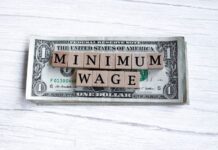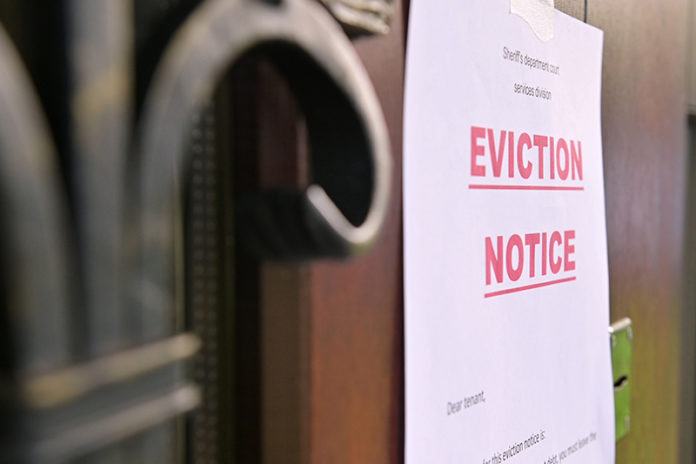The day before the Centers for Disease Control and Prevention imposed a new eviction moratorium last week, President Joe Biden’s administration conceded that the agency had no legal authority to do so. The fact that Biden was unfazed by that crucial point does not bode well for a president who was supposed to restore respect for the rule of law.
“To date,” White House press secretary Jen Psaki said in an Aug. 2 press release, “CDC Director Rochelle Walensky and her team have been unable to find legal authority for a new, targeted eviction moratorium.” Senior presidential adviser Gene Sperling used nearly identical language at a press briefing the same day, saying the CDC had concluded it lacked legal authority “even for a more targeted eviction moratorium that would focus just on counties with higher rates of COVID spread.”
Walensky nevertheless issued such an order, covering about 90% of the country, the following evening, calling it “the right thing to do to keep people in their homes and out of congregate settings where COVID-19 spreads.” The idea that government officials can ignore the law as long as they are doing “the right thing,” long-favored by authoritarians and demagogues, is anathema in a constitutional republic.
The CDC’s justification for its eviction moratorium, which it first issued last September, was troubling from the beginning, relying on an alarmingly broad reading of the Public Health Service Act. According to the CDC, Congress gave it limitless power to order Americans around, as long as the avowed goal is preventing the spread of a communicable disease.
While a few federal courts sided with the CDC, two-thirds of the decisions said the agency did not have the authority it claimed. When one of those cases made its way to the Supreme Court in June, it was clear at least five justices agreed with that conclusion.
The Court declined to lift a stay on a federal judge’s ruling against the CDC. But Justice Brett Kavanaugh, who provided the crucial fifth vote, said he agreed that the agency “exceeded its existing statutory authority by issuing a nationwide eviction moratorium.”
Because the moratorium was scheduled to expire at the end of July, Kavanaugh was willing to let it slide. But he warned that “clear and specific congressional authorization (via new legislation) would be necessary for the CDC to extend the moratorium past July 31.”
The Biden administration clearly understood the import of Kavanaugh’s concurrence. “The Supreme Court declared on June 29th that the CDC could not grant such an extension without ‘clear and specific congressional authorization,'” Psaki said on Aug. 2. Sperling echoed that point.
Biden himself conceded that “the bulk of the constitutional scholarship” says the moratorium is “not likely to pass constitutional muster.” But he hoped that the ensuing litigation would drag on long enough to allow distribution of congressionally approved rental assistance before the eviction moratorium was overturned.
While it is tempting to blame the CDC, which was responsible for the initial power grab and its subsequent extensions, the decision to defy the Supreme Court was Biden’s. The New York Times reported that Biden caved to pressure from his party’s left wing, overriding the advice of the CDC and “his own lawyers.”
Those advisers, according to the Times, “saw an extension as a dangerous step that could limit executive authority during health crises.” In other words, they wanted to avoid a Supreme Court decision definitively rejecting the sweeping powers the administration had asserted, because Biden might want to use them in the future.
While it is easy to lose sight of the fact amid progressive criticism of former President Donald Trump’s lawlessness, such reasoning is par for the course with modern presidents who typically have sought to maximize their own power, regardless of what statutes or the Constitution say. As Biden’s casual disregard for the law shows once again, an independent judiciary is a crucial check on that impulse.





























